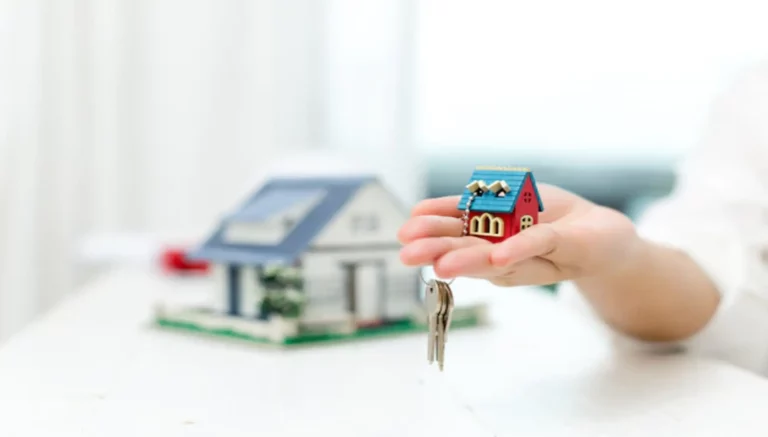
There’s nothing quite like the feeling of walking through the front door of your very own house – a place to call your own, create lasting memories, and build a foundation for the future. But we understand that the journey of buying a home can sometimes feel overwhelming. That’s why we’re here to guide you every step of the way, making the process smoother and ensuring that you approach it with confidence. Let’s get started!
Don’t Repeat These 6 Home Buying Mistakes
Buying a home is a significant milestone in anyone’s life. It’s a decision that involves careful planning, financial considerations, and a bit of intuition. While the process can be exciting, it’s important to avoid common pitfalls that can turn your dream home into a nightmare. Let’s discuss six home-buying mistakes you should steer clear of.
Skipping Mortgage Pre-approval
One of the biggest mistakes potential homebuyers make is neglecting to get pre-approved for a mortgage. Getting pre-approved by a lender before house hunting can give you a clear understanding of your budget and help you narrow down your options. It also puts you in a stronger position to negotiate with sellers.
Ignoring an Inspection
Foregoing a home inspection is a risky move that many regret later on. A professional inspection can reveal underlying issues that may not be apparent to the untrained eye, such as plumbing problems, electrical issues, or structural concerns. Investing in an inspection can save you from costly surprises down the road and give you peace of mind about your purchase.
Neglecting the Neighborhood
It’s easy to become so focused on the features of a house that you forget to evaluate the neighborhood. Take the time to research the area thoroughly. Consider factors such as proximity to schools, amenities, transportation, and safety. Visiting the neighborhood at different times of the day can provide valuable insights.
Overlooking the Future Resale Value
While you may plan to live in your new home for years to come, it’s essential to think about its future resale value. Market trends, location, and the overall condition of the property can affect its appeal to potential buyers down the line. Ensure that your investment aligns with the market expectations and has the potential for appreciation, protecting your financial interests.
Getting Emotionally Attached
Falling in love with a house is a wonderful feeling, but don’t let emotions cloud your judgment. It’s important to approach the buying process with a rational mindset. Take time to consider the practical aspects, such as maintenance costs, utility bills, and potential renovation or repair expenses. Carefully weigh the pros and cons of each property before making a final decision.
Failing to Negotiate
Negotiation is a vital aspect of buying a home. Don’t be afraid to negotiate with the seller to get the best deal possible. Consider factors like market conditions, comparable sales, and property conditions to support your position. A skilled real estate agent can guide you through this process.
What to Expect After You Buy a Home
Now that you’ve bought a house, it’s important to know what to expect in the next stages.
Closing Process
After your offer has been accepted, you’ll enter the closing process. This typically involves finalizing the purchase agreement, securing your mortgage, and completing the necessary paperwork. You’ll work closely with your real estate agent, lender, and attorney to ensure all legal and financial aspects are properly addressed. Be prepared to review and sign various documents, including the closing disclosure, loan documents, and the deed.
Moving and Settling In
Once the closing is complete, it’s time to start planning your move. Arrange for a moving company or enlist the help of friends and family if you prefer a DIY approach. Create a checklist to ensure a smooth transition, including packing, transferring utilities, updating your address, and scheduling any necessary repairs or renovations.
Upon arriving at your new home, take the time to be familiar with the property. Locate important features such as the circuit breaker, water shut-off valve, and any other essentials. Make a note of any immediate repairs or maintenance tasks that need attention.
Homeowner’s Insurance
Before moving in, it’s crucial to secure homeowner’s insurance. This type of insurance protects you financially in case of damage to your property or liability claims. Shop around for quotes from different insurance providers to find the coverage that suits your needs and budget. Remember to provide all necessary information about your new home, such as its size, location, and any additional features. Review your policy periodically to ensure it remains adequate for your evolving circumstances.
Utilities and Services
Ensure a smooth transition by setting up utilities and services in your new home. Contact local service providers to arrange for electricity, water, gas, internet, and cable connections. Notify the relevant authorities about your change of address, including the post office, banks, insurance companies, and other service providers. It’s essential to have essential services up and running when you move in.
Settling Financial Matters
As a homeowner, it’s crucial to manage your finances effectively. Create a budget that includes mortgage payments, property taxes, insurance premiums, and maintenance costs. Keep records of your home-related expenses, including receipts and invoices. Consider consulting with a financial advisor to ensure your long-term financial goals align with your homeownership. Keep track of these expenses and ensure you have sufficient funds to cover them.
Home Maintenance and Upkeep
Owning a home requires ongoing maintenance and care. Regularly inspect your property for any signs of damage or issues that may need attention. Create a maintenance schedule to stay on top of tasks such as cleaning gutters, servicing HVAC systems, and checking for leaks. Understanding how your home operates and performing preventive maintenance can save you money in the long run.
Connecting with the Community
Take the opportunity to get involved in your new community. Introduce yourself to your neighbors, join local groups or organizations, and attend community events. Building relationships with your neighbors and getting involved in community activities can create a sense of belonging and help you feel more connected to your new surroundings.
Should You Buy a Home or Rent?
Both options have their advantages and drawbacks, and the decision ultimately depends on your circumstances and goals. Some factors to consider when evaluating whether to buy a home or continue renting are:
Financial Considerations
Buying a home typically requires a substantial upfront investment, including a down payment, closing costs, and potential ongoing expenses such as property taxes, maintenance, and homeowners insurance. Renting, on the other hand, may involve lower upfront costs and fewer financial obligations. Consider your current financial situation, including your savings, income stability, and long-term financial goals. Evaluate whether you have the necessary funds and can comfortably afford the costs associated with homeownership.
Lifestyle and Flexibility
Renting offers flexibility, allowing you to easily relocate when needed. This can be advantageous for individuals who value mobility due to career changes, personal circumstances, or a desire for variety. Homeownership, however, provides stability and the opportunity to establish roots in a community. Consider your desired lifestyle, long-term plans, and how homeownership or renting would align with your goals and preferences.
Market Conditions and Rent-to-Price Ratio
Consider the current real estate market conditions and the rent-to-price ratio in your area. In some locations, it may be more affordable to buy a home than to rent, while in other areas, renting might be more cost-effective. Research the housing market, compare rental prices to mortgage payments, and evaluate which option aligns better with your budget and financial goals
Investment Potential
Buying a home can be viewed as an investment, as it has the potential to appreciate over time. Homeownership allows you to build equity and potentially benefit from market growth. Renting, on the other hand, does not offer the same opportunity for financial gain through property appreciation. Assess the real estate market in your area, historical trends, and your willingness to take on the responsibilities of homeownership as you weigh the potential investment benefits.
Maintenance and Repairs
When you rent, the landlord is typically responsible for maintenance and repairs. This can provide convenience and financial relief in case of unexpected expenses. However, as a homeowner, you have the autonomy to make decisions regarding home improvements, renovations, and customization. Weigh your willingness and ability to handle maintenance tasks and repairs, as well as your comfort level with relying on a landlord for such matters.
Tax Considerations
Homeownership may offer potential tax advantages, such as deductions for mortgage interest and property taxes. Consult with a tax professional to understand the specific tax benefits and implications of homeownership in your country or region. Renting, on the other hand, may not provide the same tax advantages but can offer simplicity and predictability when it comes to financial obligations.
Red Flags to Look for When Buying a Home
Buying a home is a significant investment, and it’s crucial to make an informed decision to avoid potential pitfalls. While viewing potential properties, it’s important to keep an eye out for red flags that could indicate underlying issues or future problems. In this article, we’ll highlight some key red flags to watch for when buying a home, empowering you to make a wise and confident purchasing decision.
Structural Issues
Pay close attention to the structural integrity of the home. Look for signs of cracks in the foundation, uneven floors, or sagging ceilings. These issues can indicate potential structural problems that may require costly repairs.
Water Damage and Mold:
Water damage can lead to significant issues, such as mold growth and compromised structural integrity. Look for signs of water stains, musty odors, or visible mold in the walls, ceilings, or bathrooms. These can indicate leaks, poor drainage, or ventilation problems. Extensive mold infestations can pose health risks, so it’s essential to address these issues before finalizing a purchase.
Faulty Electrical Systems
Inspect the electrical system of the home to ensure it is up-to-date and in good working condition. Look for outdated or exposed wiring, flickering lights, or circuit breakers that frequently trip. Electrical issues can be a safety hazard and may require significant repairs or rewiring, so it’s important to address them before finalizing a purchase.
Plumbing Problems
Check for any signs of plumbing issues, such as leaks, water stains, or a musty odor. Turn on faucets and flush toilets to assess water pressure and drainage. Plumbing repairs can be costly, so it’s essential to identify any potential issues early on to avoid unexpected expenses down the line.
Roofing and Exterior Concerns
Examine the roof for missing or damaged shingles, signs of water penetration, or sagging areas. A deteriorating roof can lead to leaks, water damage, and expensive repairs. Additionally, inspect the exterior of the house for cracks, rotting wood, or signs of poor maintenance. These issues may indicate a lack of upkeep and potentially more significant problems.
Pest Infestations
Look for signs of pests, such as droppings, damaged wood, or pest control traps. Common pests include termites, rodents, and ants. Pest infestations can cause extensive damage to property and compromise its structural integrity. Addressing pest issues promptly is essential to protect your investment and ensure a safe living environment.
Unfavorable Neighborhood Conditions
Take note of the neighborhood’s overall condition and any potential red flags. Pay attention to excessive noise levels, high crime rates, poorly maintained neighboring properties, or limited amenities. Research the area thoroughly and visit at different times of the day to get a comprehensive understanding of the neighborhood’s suitability for your needs and lifestyle.
Unresolved Legal or Permit Issues:
Before finalizing a purchase, ensure that the property has clear title ownership and that all necessary permits have been obtained for any renovations or additions. Unresolved legal or permit issues can create complications and financial liabilities for you as the buyer. Consult with a real estate attorney to review the property’s legal documentation and ensure a smooth transaction.
How Much Can You Afford to Spend on a New Home?
Determining how much you can afford to spend on a new home is a crucial step in the home-buying process. It’s essential to establish a budget that aligns with your financial situation, long-term goals, and lifestyle. Some key factors to consider when determining how much you can afford to spend on a new home are:
Assess Your Finances
Start by evaluating your current financial situation. Consider your income, savings, and existing debt obligations. Calculate your monthly net income and deduct necessary expenses such as loan payments, utilities, insurance, and living costs. Understanding your financial health will help you gauge the amount you can comfortably allocate to housing expenses.
Calculate Your Debt-to-Income Ratio
Your debt-to-income ratio is an important metric that lenders use to assess your borrowing capacity. It’s calculated by dividing your monthly debt payments by your monthly gross income. Typically, lenders prefer a debt-to-income ratio of 43% or lower, although requirements may vary. Aim to keep your debt obligations manageable to ensure financial stability.
Consider Down Payment and Closing Costs
When buying a home, you’ll need to consider the down payment and closing costs. The down payment is a percentage of the purchase price that you pay upfront while closing costs include fees for services like appraisal, inspection, and loan origination. Saving for a down payment and factoring in closing costs will impact the overall affordability of your new home.
Opt for a Comfortable Mortgage Payment
As a general guideline, financial experts recommend keeping your housing costs (including mortgage principal, interest, property taxes, and insurance) at or below 25-30% of your monthly gross income. Consider your lifestyle, long-term financial goals, and other financial obligations when determining what monthly mortgage payment you feel comfortable with.
Account for Additional Expenses
Owning a home entails additional expenses beyond the mortgage payment. These can include property taxes, homeowners insurance, utilities, maintenance, repairs, and potential homeowners association fees. Be sure to account for these ongoing costs when assessing how much you can afford to spend on a new home.



